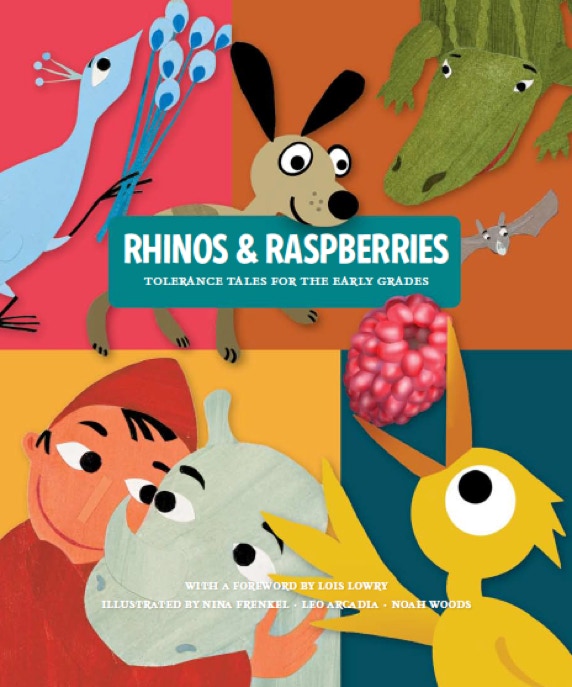-
Home
-
About
-
Research Intro
-
Childrens Lit
-
Curriculum

Jeff’s first children’s book - Rhinos & Raspberries: Tolerance Tales for the Early Grades - was released in 2006. It includes 12 fully illustrated stories, along with activity ideas, discussion prompts and full lesson plans, and has been sent free to more than 30,000 teachers, pre-kindergarten through 6th grade.
Lois Lowry - two-time Newbery Medal winner for most distinguished contribution to American literature - wrote the introduction. Rhinos & Raspberries received the Golden Lamp Award, the Association of Educational Publishers’ top honor.
INTRODUCTION
For more than a decade, in a feature called Story Corner, Teaching Tolerance magazine has celebrated the transformative power of folktales, fairy tales, fables and parables. This book contains some of our favorite selections from over the years and also offers new stories, written especially for Teaching Tolerance, by noted children's book authors Mary Newell DePalma and Rigoberto González.
Rhinos and Raspberries is for early-grade teachers and their students. Its stories and activities support key educational and social goals. The multicultural tales contained in Rhinos and Raspberries can:
Counteract prejudice formation.
These stories expose and connect students to cultures from around the world. Researchers have studied the effects of such materials on children for more than four decades. As researcher James Banks concluded in the Handbook of Research on Multicultural Education, the use of multicultural materials "can have a positive influence on students' racial attitudes and beliefs."
Improve interpersonal skills.
These stories address a wide range of human emotion and behavior — presenting examples of unkindness and prejudice, as well as examples of kindness and tolerance. The tales will help children empathize with others from various cultures and backgrounds. Research shows that when children develop the ability to empathize, they are more likely to display positive interpersonal skills — something vital in our increasingly diverse world.
Inspire students to stand up against unfairness.
These stories give children a model for active engagement in real-life issues. The inherent message in all of the stories is that children can create more welcoming communities — communities built on kind behavior and respectful language — by working together to understand and diminish the ills of bias and prejudice.
Support culturally responsive teaching.
These stories can help students share cultural knowledge and experience to better understand and more deeply appreciate their own and each other's heritages.
Teachers know that the use of cultural knowledge, prior experiences and performance styles of diverse students increases students' ability to learn.
Bolster literacy.
The lesson plans contained in this book combine explorations of tolerance themes with proven literacy and comprehension strategies. In this way, multiculturalism and traditional language arts programming go hand-in-hand.
Stories were the world's first curriculum, and they remain a powerful force for change. The stories in Rhinos and Raspberries can help young children envision and create the world in which we all will thrive and grow — together.
Jeff Sapp, Ed.D.
Senior Curriculum Specialist/Writer
Teaching Tolerance
June 2006
Lorem ipsum dolor sit amet, consectetur adipiscing elit. Aliquam tincidunt lorem enim, eget fringilla turpis congue vitae. Phasellus